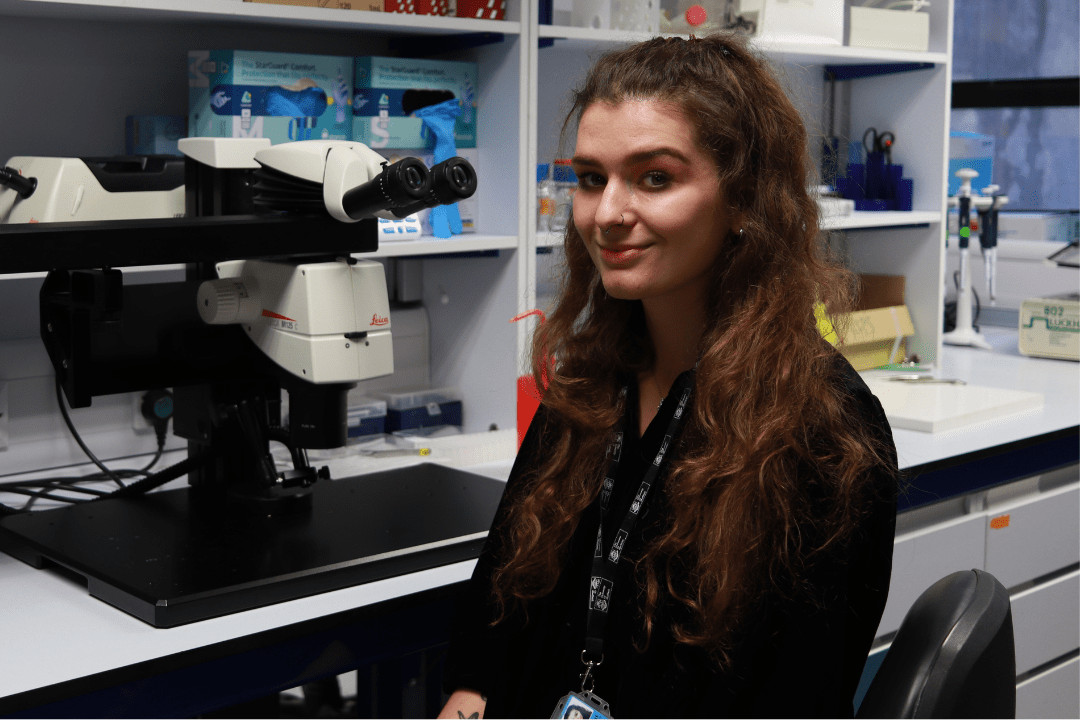University of Sheffield

Alice Zanella was born in Padova, Italy. After studying classics and humanities at high school, she moved to Sheffield for her undergraduate studies in 2019, studying biomedical science.
While studying and different fields of science during her degree, Alice was particularly drawn to translational neuroscience and genetics.
More about Alice’s work
In her third year, Alice found out about the Marcotti lab at Sheffield and the hearing research it focuses on. She shadowed members of the lab and got to know more about the projects they were working on.
She found their research fascinating and decided to join the lab for her Master’s research project. Following on from this, Alice chose to pursue a PhD in the lab, focussing on gene therapy for progressive hearing loss.
Investigating whether gene therapy could treat age-related hearing loss
Read about Alice’s research projectAlice’s approaches to hearing research
I believe that the discovery of many new deafness genes, linked to different types of hearing loss, is an important breakthrough for hearing research, especially for the design of new potential therapies.
Personally, I am deeply fascinated by the potential of gene-based approaches to treat hearing loss. Gaining a more thorough understanding of the effectiveness and feasibility of gene therapy is a critical step in designing treatments that could either prevent, or perhaps even reverse, loss of hearing.
People often only realize how important hearing is for most aspects of their lives when they start to lose it. Unfortunately, hearing loss is the most common sensory disorder, affecting a significant proportion of the world’s population.
Hearing loss is linked to depression and anxiety and can also limit social interactions and work opportunities for those affected. At the moment, hearing aids and cochlear implants benefit people with hearing loss, but they cannot restore natural hearing. This is why I believe it is urgent that we develop new therapies to treat hearing loss.
I hope my research will provide important evidence to support the suitability and benefits of gene therapy as a treatment for age-related hearing loss, which has not been studied yet. This would be a critical milestone towards translating this research into clinics, helping to greatly improve the quality of life of patients affected by progressive loss of hearing.